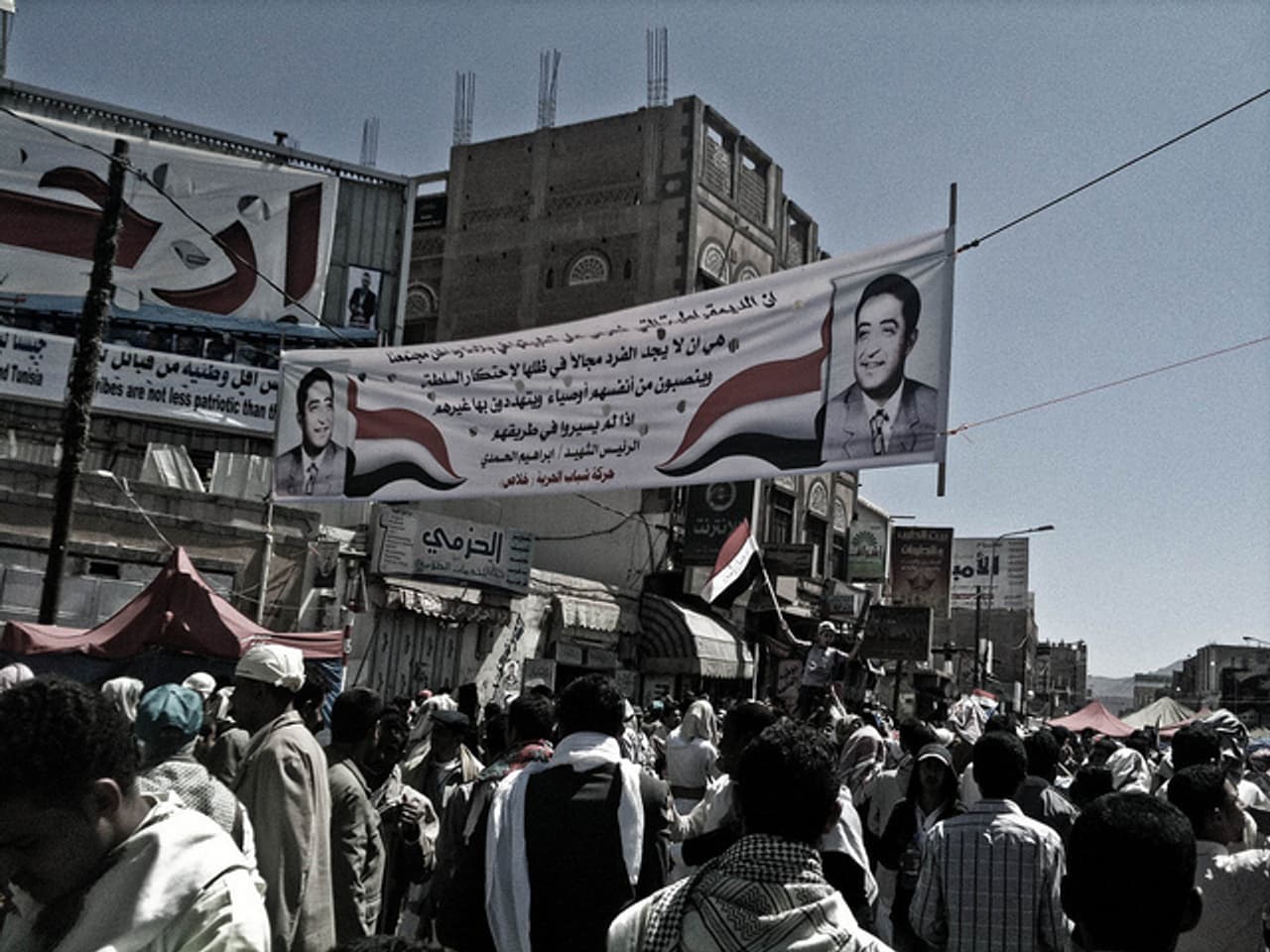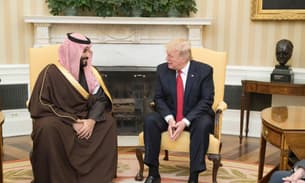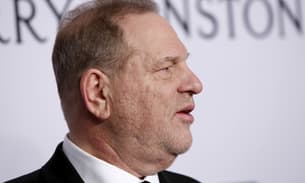
Bell Pottinger acted for controversial Yemen organisation
Bell Pottinger, the London-based public relations firm, has been working for a little-known organisation in Yemen with apparent strong links to the country’s president, the Bureau can reveal.
This may be the most controversial account yet for the firm, which has already come under fire this year for its work for Bahrain’s government.
Bell Pottinger is understood to have provided communications services to Yemen’s National Awareness Authority, which is headed by President Saleh’s nephew, for around three months. A source within Bell Pottinger, who asked not to be named, told the Bureau the Authority ended the contract a few weeks ago. The firm also worked for Yemen’s Ministry of Foreign Affairs in 2010.
Working for Yemen
Lord Bell, chairman of Bell Pottinger’s parent company Chime Communications and a former adviser to Margaret Thatcher, admitted to the Guardian on July 28 2011 that his firm had been working for the government of Yemen.
The paper quoted him as saying the contract was to assist with ‘achieving a peaceful transition to a new government,’ and the paper added that the firm was working for a ‘special entity that has been created within the Yemen government to ensure a transition to a newly elected government’. But the National Awareness Authority was set up in January 2010, well before the ‘Arab Spring’ and any suggestion of transition.
The paper also said the firm was not understood to have been working for Yemen’s president, Ali Abdullah Saleh, who is still in Saudi Arabia recovering from an attempted assassination carried out in June, which followed protests over Saleh’s 33 years of rule.
Bell Pottinger is under no obligation to reveal its clients in the UK and its work for the National Awareness Authority has only come to light because of a mandatory filing on the US Department of Justice register of lobbyists working for foreign governments.
The filing on August 4 2011 shows Bell Pottinger sub-contracted a US company, Qorvis, to carry out ‘media outreach for print and television media and strategic communications consultancy’ in the US for the National Awareness Authority of Yemen, at a rate of $30,000 per month. In November 2010 Bell Pottinger also contracted Qorvis to place an opinion article by a Yemeni official in a news outlet, as part of its work for the foreign ministry.
The National Awareness Authority was set up with the stated aim of promoting national unity and tolerance and combating extremism.
Close relations
But President Saleh’s nephew, Colonel Tareq Mohammed Abdullah Saleh, who is also the commander of the Presidential Guard, is the Authority’s chairman and founder, and its board of trustees includes members of President Saleh’s current cabinet.
In February 2010 the National Awareness Authority’s website carried an article praising the heroism of the Republican Guard, an elite force run by President Saleh’s son. The same article discussed counteracting the ‘deviant and misguided ideas’ of those who ‘seek to stir up dissent’.
A report in the newspaper Yemen Today at the time of the Authority’s establishment quoted its vice-president Dr. Abdullah Abo Horia saying the new organisation had been accused of spreading propaganda, which he said was due to a lack of trust. Abo Horia added: ‘There is a lack of patriotism, especially among the youth, caused by opposition groups and others who put their own interests above the national interests,’ adding that the organisation was financially independent of the government.
The editor of Yemen Today, Faris Sanabani, was formerly President Saleh’s press secretary. He is also on the ‘media committee’ of the National Awareness Authority and a member of its board of trustees.
Hakim Almasari, publisher and editor in chief of the independent English language newspaper Yemen Post said: ‘The National Awareness Authority is a mouthpiece of President Saleh’s ruling family, which I believe funds it.’
The Bureau was unable to contact a spokesman from the National Awareness Authority.
Lord Bell said: ‘All appropriate authorities were aware of the work we were doing in Yemen.’ He declined to comment further.
Special projects
Bell Pottinger Sans Frontieres (BPSF) the arm of the firm which managed the Yemen account, has a ‘special projects’ unit which describes itself as the ‘SAS of strategic communications’. Services offered by the special projects team include ‘geo-political reputation rebuilds’; ‘conflict zone influence operations’; ‘psychological warfare’ and ‘counter-radicalisation’.
‘The company develops and delivers influence campaigns, products and events that address civic populations or adversary forces in support of political, military or diplomatic objectives,’ its website says.
The NGO Reporters without Borders recently highlighted the difficulties in covering the protests in Yemen against a background of harassment of journalists including abductions, murder attempts, arrests, expulsions and attacks on offices.
Iona Craig, a freelance reporter based in Yemen, said: ‘The media situation is particularly tough for local Yemeni journalists who have come under consistent intimidation and sometimes direct physical attack from supporters of the regime. Several foreign journalists have been deported and others have been turned away at the airport as they tried to enter the country.’
Bell Pottinger has not done anything illegal, but Mike Harris, a spokesman for Index on Censorship, which has campaigned against British PR firms working for undemocratic regimes, said: ‘Bell Pottinger agreed to try and spin international coverage of Yemen, despite the appalling human rights situation in the country.’




